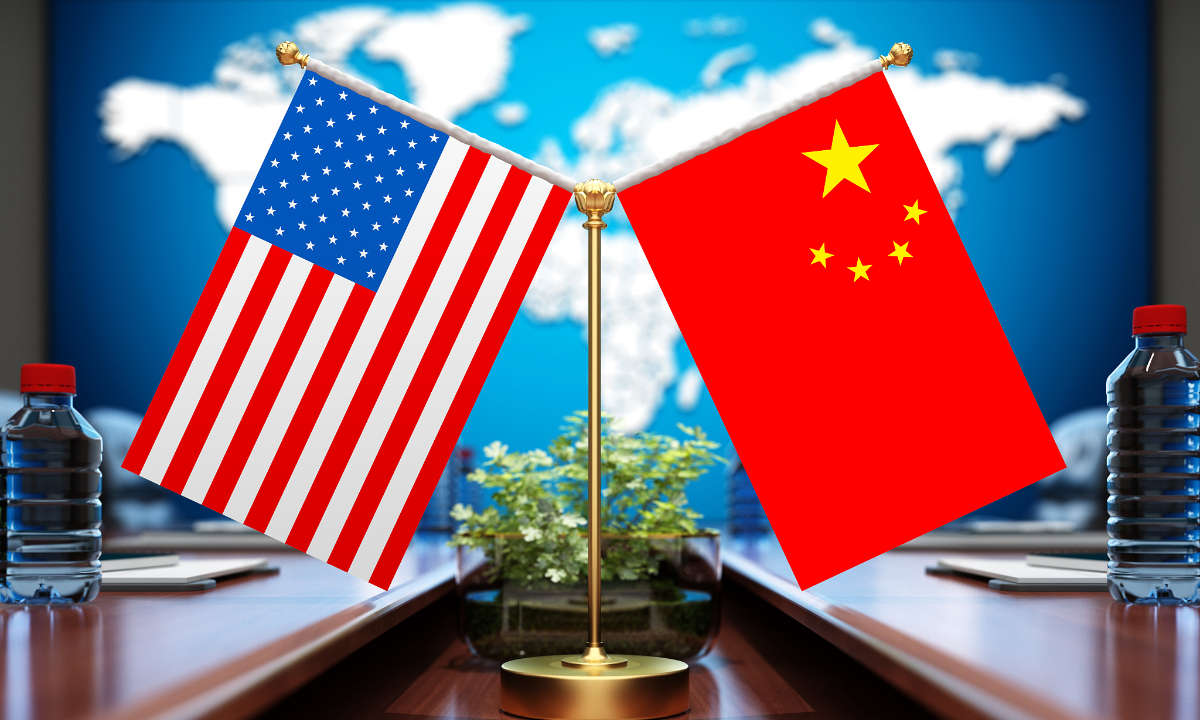
China US Photo:VCG
China and the US, the world's two biggest economies, are set to hold a high-level meeting on Saturday in China to exchange views on China-US economic and trade relations as well as issues of common concern, maintaining the positive momentum on high-level engagement between the two sides as senior Chinese and US officials are holding or scheduled to hold meetings in multiple fields including climate and military.
However, ahead of the talks, the US announced a flurry of actions, including new export curbs on critical technologies including quantum computing and semiconductor goods, widely seen as primarily targeting China. Analysts called on the US to handle relations with China from the perspective of a responsible major country and join hands with China to maintain normal global trade order and reasonable market competition, which will benefit the whole world.
The vice-ministerial meeting of the China-US commercial and trade working group, the second of its kinds, will be co-chaired by China International Trade Representative and Vice Minister of Commerce Wang Shouwen and the US Under Secretary of Commerce for International Trade Marisa Lago. The two sides will exchange views on a wide range of issues, including their respective concerns about economic and trade policies, appeals from businesses and pragmatic cooperation, according to the Chinese Commerce Ministry.
Enhancing bilateral dialogues is necessary in addressing certain issues of concern to both sides and helps stabilize bilateral ties, especially in the economic and trade fields, said He Weiwen, senior fellow from the Center for China and Globalization.
The upcoming meeting of the China-US commercial and trade working group continued the momentum of recent increased interactions between Chinese and US officials.
Following US National Security Advisor Jake Sullivan's China trip in late August, Chinese Foreign Minister Wang Yi met with US Senior Advisor to the President for International Climate Policy John Podesta on Friday. The US is reportedly planning to send a deputy assistant secretary of defense to 11th Beijing Xiangshan Forum this month.
Given the US' foreign policy of "decoupling" from and cracking down on China is fundamentally unchanged, it is expected the Chinese side will likely raise concerns over a series of unilateral policies from the US, for example, plans to impose hefty additional tariffs on Chinese electric vehicles and export restrictions of tech products targeting China at the upcoming commercial and trade talks, He said.
The Biden administration plans to impose export controls on critical technologies including quantum computing and semiconductor goods, seeking to align the US with allies working to thwart advancements in China and other adversarial nations, media reported.
The Chinese Foreign Ministry said on Friday that China is opposed to the US turning trade and tech issues into political issues and weapons. Obstructing normal cooperation on tech and trade and economic exchange violates the principle of market economy, destabilizes global industrial and supply chains and serves no one's interest.
It is a familiar gimmick made by the US to leverage unilateral measures as a bargaining chip ahead of talks with China. This also indicates the challenges of the upcoming trade talks between the two countries, Bao Jianyun, director of the Center for International Political Economy Studies at Renmin University of China, told the Global Times.
However, despite the US' political maneuvers, China has showed sincerity and is trying to boost bilateral relations back to normal track, Bao said. "In combination, the output of the Chinese and US economies accounted for over 40 percent of the global total in 2023, and thus it bears monumental significance for the two countries to maintaining global economic stability," he said.
US should view its relations with Beijing from the perspective of a responsible major country and join hands with China to maintain normal global trade order and reasonable market competition, which will not only benefit the two countries but the whole world, Bao said.




